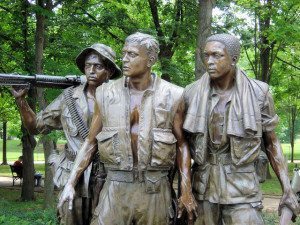Military Records in Genealogy Work

When you undertake the task of beginning your family history, you may find some basic information through your own family records. If you’re lucky a grandparent might have compiled a family tree or pedigree chart. You may be able to find a few generations worth of family members through journals, family documents, or the internet. But once that trail runs dry you might be confused about where to turn next. At that point, you may need to become a bona fide genealogical researcher and go find the documents you require to continue your family tree.
Military records are an excellent place to turn. Nearly every family has a member who served in at least one war or conflict - or during peacetime service. You may have heard stories about your grandfather’s brave service, or an uncle who was a famed fighter pilot. Even if you feel that part of the family tree is complete, military documents can clarify gray areas and offer insight into the lives and traits of your family members.
Military service is generally well documented, and there are many different types of records. One thing to remember is that many men and women forged or altered their documents in order to qualify for or avoid military service. Keep that in mind in case the military documents seem to contradict other research you have completed - it may be right, or it may be wrong. But it is helpful to have on file nonetheless.
There are many different types of documents you can find regarding military service. Here are a few of the most common types which you can find in various public data collections:
Draft Registration Cards
These will include dates, ages, locations, and even general health information. Many of these men were never actually called into service, but their information was saved and documented in the event that they needed to be called up.
Casualties
Casualty lists include those who died or were injured in service of their country. Most include dates and sometimes even specifics about how or why the person died or was injured.
Soldier/Veteran/Prisoner Rolls
These lists are hit-or-miss depending on where they are coming from and who completed the rolls. Sometimes they contain ages, dates, positions, locations, and even daily information. Sometimes they only contain names. Either way, you can fill in some gaps or gray areas regarding your family’s military service.
Awards & Decorations of Honor
You would think that awards, honors, medals, etc., would be family heirlooms and proudly passed down physically or orally through generations. However, you’d be surprised at how many families have no idea that their ancestors attained high honors, medals, or special awards during their military service - especially if those family members died in service and didn’t live to tell the tale.
Don’t forget to search carefully for these records in your family history. You can look through these items online or in libraries across the country, and sometimes you can even find them among your own possessions or family heirlooms. If you find yourself stuck or lost in your family history research you can find professional help if you contact a genealogical firm like Price & Associates.
